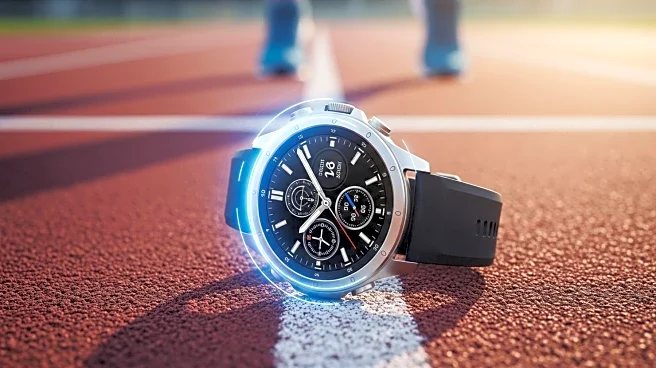What is the story about?
What's Happening?
The running industry is experiencing a surge in technological advancements, with products like carbon-plated shoes and electrical stimulation devices promising enhanced performance and recovery for runners. The NoName Program, a marathon training regimen powered by Lululemon, exemplifies the growing trend of tech-driven running solutions. However, concerns are rising about the efficacy and safety of these products, as many are marketed with unproven claims. Firefly, a startup featured on 'Shark Tank,' offers wristwatch-shaped devices that use electricity to increase blood flow, but experts question the validity of its claims. Despite FDA clearance, the product's effectiveness compared to traditional methods like walking remains debated. The running gear market, fueled by social media promotions, is now a $4 billion industry, with products ranging from compression shorts to energy gels, often targeting runners' insecurities.
Why It's Important?
The proliferation of tech-driven running gear has significant implications for the sport and its participants. While elite runners benefit from innovations like super shoes, average runners face a barrage of marketing for products that may not deliver promised results. This trend raises concerns about consumer spending on potentially ineffective or harmful gear, impacting the financial well-being of individuals and the credibility of the industry. The focus on technology could overshadow the fundamental aspects of running, such as physical fitness and community engagement. As more people invest in these products, the risk of injury or disappointment increases, potentially deterring participation in running events and affecting the sport's growth.
What's Next?
The running industry may see increased scrutiny from regulatory bodies and consumer advocacy groups as the demand for evidence-based claims grows. Companies like Firefly might need to conduct more comprehensive studies to validate their products' effectiveness. Runners and coaches may advocate for a return to basics, emphasizing training and physical conditioning over reliance on technology. The industry could also witness a shift towards transparency in marketing practices, with brands required to substantiate claims with scientific research. As the debate over tech-driven gear continues, stakeholders may push for clearer guidelines to protect consumers and preserve the integrity of the sport.
Beyond the Headlines
The commercialization of running gear highlights broader ethical and cultural issues within the sports industry. The emphasis on technology reflects societal trends towards quick fixes and instant gratification, potentially undermining the values of perseverance and dedication inherent in running. This shift could influence how future generations perceive and engage with the sport, prioritizing gadgets over personal achievement. Additionally, the environmental impact of producing and disposing of tech-heavy gear raises sustainability concerns, prompting discussions on responsible consumption and production practices.
















